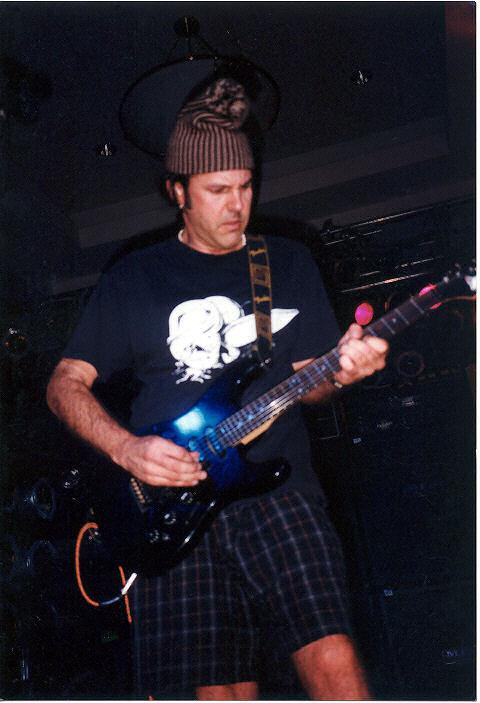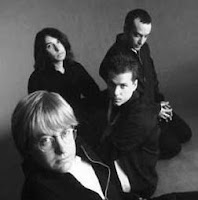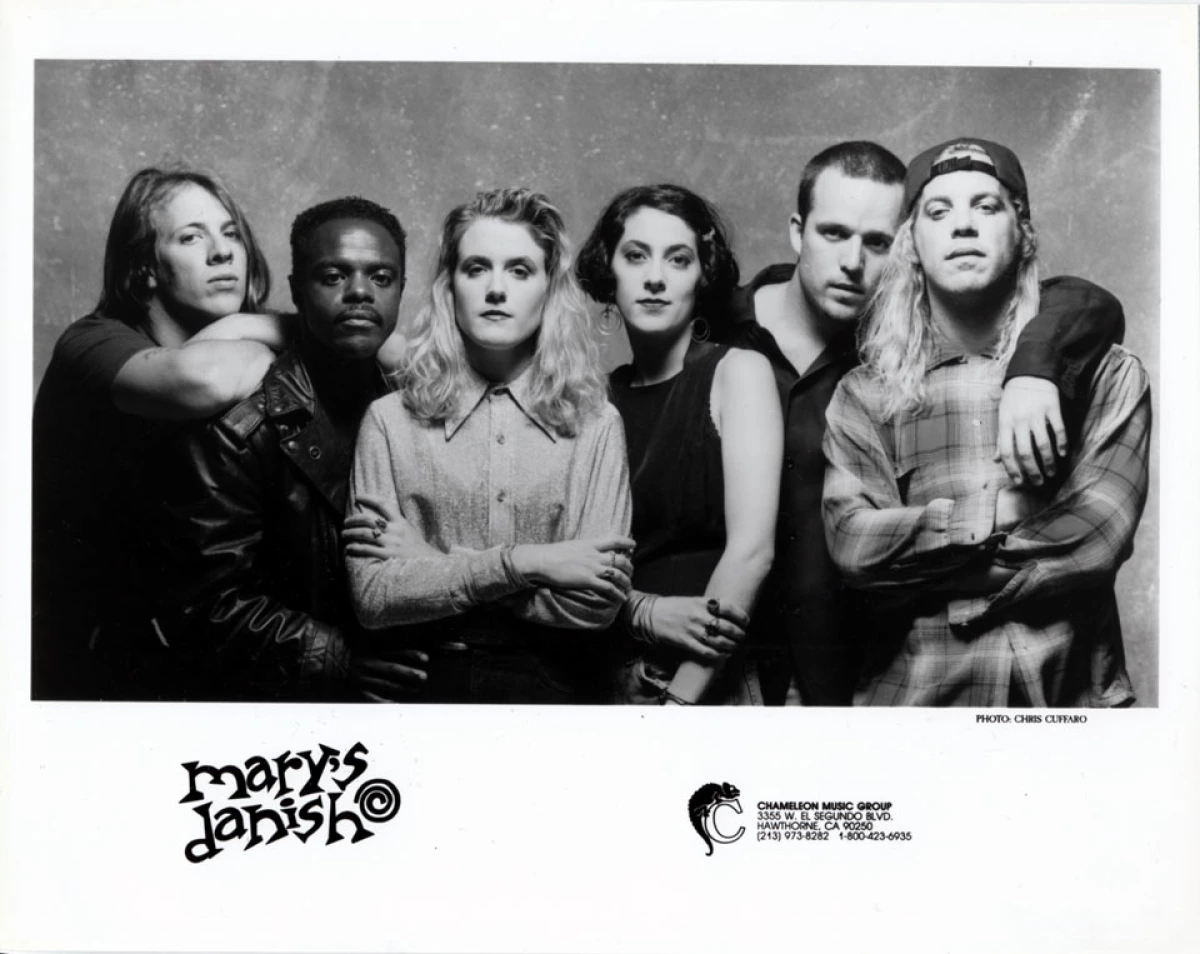Barry Um: A Retrospective Chat with Jeff Jara of Shatterproof
Discography:
Slip
It Under the Door
(Fort Apache/MCA, 1995)
Splinter Queen (Catlick Records, 2007)
Shatterproof were a Minneapolis based alt rock band that briefly hit the big time in the mid-’90s. Linking up with the hot label of the moment, Fort Apache, the band signed with MCA and released their major label debut in 1995. Their second record, originally due in late 1996 was shelved, the band was dropped and subsequently disbanded. An indie label picked up the tapes and eventually released the disc in 2007 and the band played a one time reunion show at the record release. In 2010 drummer Jeff Jara answered a bunch of questions about the band’s history and I’m happy to finally see the whole piece in print.
Pete Crigler: When did you become interested in music?
Jeff
Jara: I started playing drums when I was seven years old, and picked up the
guitar and piano when I was in high school. I’ve never taken formal lessons for
any instruments I play.
Pete: When did the band come together and was there much of a scene when you
got started?
Jeff:
Shatterproof started in 1993. The Twin Cities area was a hotbed of music
culture at the time, and it contained a pretty sophisticated music
infrastructure that helped bands like ours become more visible. There were also
a number of great live music clubs, recording studios, and radio stations that
played alternative music. Minneapolis is a major tour stop for national and
international bands, which at the time helped develop and refine our cultural
tastes. Prince was the best known major label artist in Minneapolis, but there
also was a well-developed alternative music scene that included Balloon Guy,
Polara, and a few other bands that were gaining regional and even national
exposure. Shatterproof was part of the second wave of the movement that
had started in the early 80s with the Suburbs, Husker Du, the Replacements, the
Jayhawks, and Soul Asylum. All of these first generation bands had major-label
deals at one point, so there was a precedent for us to follow.
Jeff:
Shatterproof caught the interest of major labels sometime in 1993 or early
1994. Our producer, Paul Kolderie, is originally from the Twin Cities and
was visiting for the holidays. He happened to
catch Shatterproof (then called Hovercraft) at First Avenue and
started a friendship with the band that eventually led to the record
deal.
Pete: When did you sign with MCA?
Jeff: Shatterproof signed in 1994.
Pete: What exactly happened with the second record and how did the band feel about it?
Jeff:
We recorded and mixed the tracks in Minneapolis and Boston during the summer
and fall of 1995 and finished the entire project by the end of the year. From
what I recall, the head of A&R at MCA liked what he was hearing and was
supportive of our progress and musical direction. But this was also a time when
a lot was happening with MCA. During that summer we learned that the Seagram’s
Company bought a majority interest in MCA, so we knew some changes were likely
to take place. Sure enough, by the end of the year, the head of A&R at MCA
had resigned.
Jay
Boberg (the co-founder of I.R.S. Records) became the new president of MCA
Records in January, 1996, and shortly afterward we found out that the label was
delaying the release of our record. Their explanation was that Mr. Boberg had
listened to the finished record and liked the song “Septemberine”, commenting
that it sounded similar to early R.E.M. However, he wasn’t impressed with the
rest of the songs, so our A&R rep told us to go back into the studio and
come up with more tracks in the style of “Septemberine.”
At first we were reluctant to record more songs because we felt strongly that the record was complete and finished as a work of art. However, we eventually relented and came up with another batch of tracks that, unfortunately, they didn’t like, either. The whole project ground to a halt and we ended up spending most of the winter of 1996-97 trying to get it going again, to no avail.
Pete: How long after the record got shelved did the band get dropped?
Jeff: I left the band in June of 1997 to return to graduate school. My understanding is that MCA dropped the band a few months later. Shatterproof’s manager shopped the band and the unreleased record to other major labels but didn't find any interest.
Pete: When did the band break up and do you keep in touch with everyone?
Jeff:
The band never again performed or recorded as Shatterproof, but the remaining
members continued on under a different name for the next few years. I lost
touch with everyone, but we reconnected in 2007 through mutual friends, which
is how all of us ended up playing together at the record release party in May
of 2007.
Pete: What are you guys up to now?
Jeff: Our lead guitar player, Jon Hunt, is in a really cool band called Blue Sky Blackout, and our lead singer/guitarist Jay Hurley and bassist Rob Robello are in a great band called Landing Gear. I’m playing in a band here in Milwaukee called the Straightaways. I’m currently working on my Ph.D. in art history and am an adjunct professor at the University of Wisconsin-Milwaukee, and I also design education and training programs for a Milwaukee-based financial services company.
Pete: How did you feel about Catlick releasing the record and are you happy it finally saw the light of day?
Jeff:
I was really happy when I learned that Catlick Records was releasing the
record. I always lamented the fact that we made this really great
record it ended up gathering dust on a shelf. I had been listening to it for
years and had been sharing it with friends, and their responses were always
very positive. When the record was released, we received some really great
reviews in the Minneapolis press, which was gratifying. I’m glad people are
finally getting a chance to hear it, and because it’s for sale on iTunes, we’re
not limited to local distribution, which is pretty cool.
Pete: Any advice for musicians looking to sign to a major?
Jeff:
First and foremost, keep a sense of perspective. Have as much fun as you
possibly can and be willing to work hard without any real expectations for
success. If you focus on having the best possible artistic experience and not
on pursuing money and fame, you won’t be as disappointed if you don’t “make
it.” Shatterproof’s overall experience with MCA records wasn’t a blueprint for
success, but it was one of the defining experiences of my life because I took
it for what it was, a great opportunity to be creative at the highest
level.
Second,
recognize that being signed to a major label is not a sign that you’ve “made
it.” In reality, it’s just a beginning. At any given time there are dozens of
bands on a label’s roster, and you have to work to keep yourself visible to the
executives. Hire a good manager and a good attorney and let them advocate for
you. Always remember that this is a business, so treat it that way.
Third,
pay attention to how the business works and to the money. Try not to mix your
personal money with the band business, and always have at least a basic
understanding of how the money from your record deal is being spent. Also, keep
your day job. I met a lot of musicians who quit their jobs the day they
signed their deals and lived off of the money from their advance. Unless you
have really good reasons for not working (like a heavy touring or recording
schedule), you should always be working and staying ahead of your expenses.
Working also prevents you from partying all the time, which gets old after
about a month.
Finally,
I strongly suggest reading the book So You Wanna Be a Rock & Roll
Star, by Jacob Schlicter, the drummer for Semisonic (they were from
Minneapolis as well and were also with MCA at the same time
as Shatterproof). In my view, it is the most accurate and timely account
of a major label experience ever written.
Pete: Any stories about being signed to a major?
Jeff: Right after Shatterproof finished the second record, Oasis asked us to open for them at the Orpheum Theater in our hometown of Minneapolis. The night of the show, we hung out and ate dinner with the band and their crew, and we also watched them do their sound check. When it was time for us to play, I remember waiting backstage for the house lights to go down, and when they did, we all walked out in front of that huge Oasis banner and picked up our instruments. The sold-out crowd started screaming at the top of their lungs because they knew who we were. We started our first song, the stage lights went up, and it was mayhem. I got goose bumps and felt the biggest rush of adrenaline I’ve ever experienced. We ended up playing a really great set that night, and the whole time I kept thinking how lucky I was to be doing this for a living.




Comments
Post a Comment